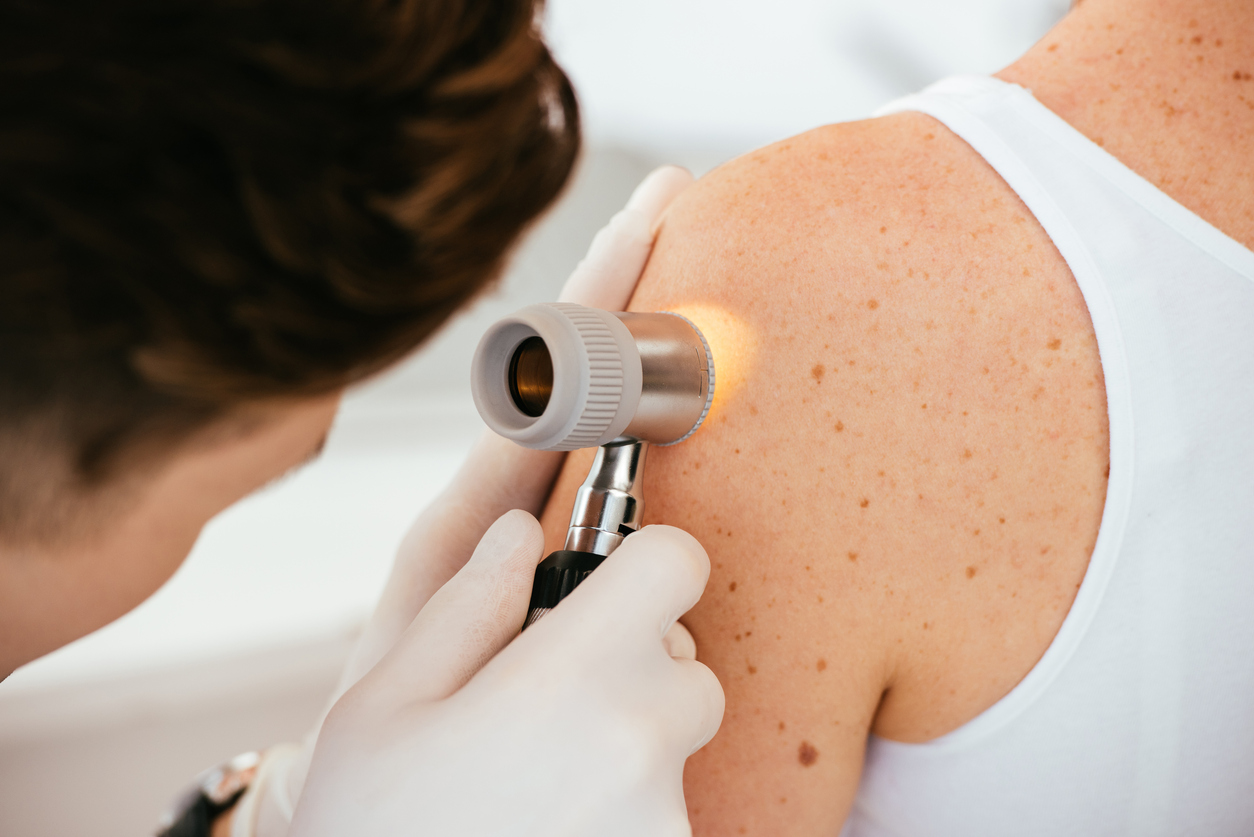
Skin cancer is a prevalent and potentially fatal disease that affects millions of people around the world. Understanding the different types of skin cancer and their prevalence is crucial for early detection and successful treatment. Regular skin cancer screenings by a dermatologist are vital in ensuring early detection and improving treatment outcomes.
Understanding Skin Cancer
Skin cancer is a disease in which abnormal cells in the skin grow uncontrollably, forming tumors. It is a complex condition that requires a comprehensive understanding to effectively diagnose and treat. Skin cancer can affect people of all ages, genders, and ethnicities, although certain factors such as excessive sun exposure, a weakened immune system, and a family history of skin cancer can increase the risk. There are three main types of skin cancer: basal cell carcinoma, squamous cell carcinoma, and melanoma.
The Prevalence of Skin Cancer
Skin cancer is a significant public health concern, with incidence rates rising globally. The World Health Organization estimates that over 2 million cases of non-melanoma skin cancer and more than 132,000 cases of melanoma are diagnosed each year. In the United States alone, it is estimated that one in five Americans will develop skin cancer in their lifetime.
The Importance of Skin Cancer Early Detection
Early detection significantly improves the chances of successful treatment for skin cancer. When the cancer is detected early, it is often localized and easier to remove completely. Surgical procedures, such as excision or Mohs surgery, can effectively eliminate the cancerous cells from the skin.
Additionally, less invasive treatment options, such as topical creams or photodynamic therapy, may be viable for early-stage skin cancer. These treatments are generally less aggressive and have fewer side effects compared to more advanced stages of the disease.
Benefits of Dermatologist Skin Cancer Screenings Over Self-Checks
While self-checks are a good starting point in identifying potential skin abnormalities, they have limitations. Consulting a dermatologist for regular screenings offers several advantages that self-checks cannot provide.
Self-Checks Have Limitations
Self-checks rely on individuals recognizing changes in their own skin, which can be challenging, especially when it comes to detecting subtle signs of skin cancer. Additionally, self-checks do not provide the expertise and knowledge that dermatologists possess, making it more likely for skin cancer to go undiagnosed.
Dermatologists Have Expertise
Dermatologists are trained to identify even the earliest signs of skin cancer. They have extensive knowledge of what to look for, including variations in the appearance of moles, and can accurately assess the risk of skin cancer based on individual factors such as family history and personal sun exposure habits.
Dermatologists Use Advanced Tools
When you visit a dermatologist for a skin cancer screening, they will conduct a thorough examination using different tools. They may use a magnifying instrument called a dermatoscope to examine moles more closely. This instrument may also have a light attached to it for an even clearer look. These advanced tools reduce the risk of an unnecessary skin biopsy.
When and How Often to Get Screened for Skin Cancer
The frequency of skin cancer screenings largely depends on individual risk factors and recommendations from healthcare professionals. Understanding when and how often to get screened can help individuals prioritize their skin health and ensure timely detection.
Recommended Frequency of Skin Cancer Screenings
It is generally recommended to have a baseline skin cancer screening in your twenties. As you get older an annual skin cancer screening can ensure a dermatologist can detect any mole changes early. Skin cancer screenings are also considered preventative services and are often covered by insurance. While you may only get a screening annual by a skin professional, self-checks in between are still important.
Risk Factors That May Require More Frequent Screenings
Factors such as fair skin, a history of blistering sunburns, excessive sun exposure, a weakened immune system, and a family history of skin cancer can increase the risk of developing skin cancer. If any of these risk factors apply to you, it is crucial to discuss your individual screening needs with a dermatologist. Oftentimes, a dermatologist will recommend getting a screening every 3-6 months if you fall under the high risk category.
By prioritizing regular screenings with a dermatologist, individuals can take proactive steps towards early detection and successful treatment of skin cancer. Don’t wait until it’s too late; be proactive and prioritize your skin health today. Contact us to schedule a skin cancer screening with one of the experience dermatologists at Center for Dermatology today.